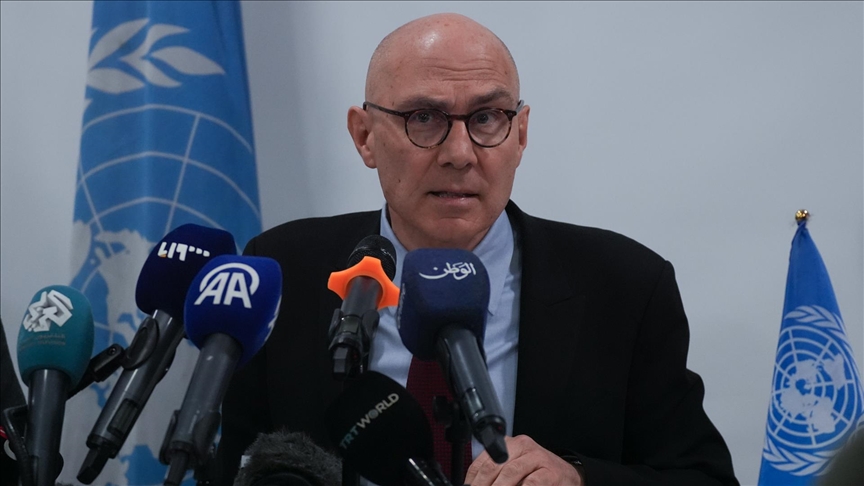UN rights chief deems deadly attacks on Gaza aid sites 'unconscionable'
Turk urges prompt investigation, says Israel's actions may constitute elements of 'most serious crimes under international law'
 UNHCR's Volker Turk
UNHCR's Volker Turk
GENEVA
The UN human rights chief on Tuesday called a string of deadly attacks near food aid sites in Gaza "unconscionable," warning that the militarized nature of Israel's humanitarian assistance mechanism may be putting civilians at further risk and potentially violating international law.
"For a third day running, people were killed around an aid distribution site run by the 'Gaza Humanitarian Foundation'. This morning, we have received information that dozens more people were killed and injured," Volker Turk said in a statement.
"Deadly attacks on distraught civilians trying to access the paltry amounts of food aid in Gaza, are unconscionable," he added.
Turk called for "a prompt and impartial investigation into each of these attacks, and those responsible held to account," stressing that "attacks directed against civilians constitute a grave breach of international law, and a war crime."
He warned that Palestinians are being pushed toward a horrifying choice: "Die from starvation or risk being killed while trying to access the meagre food that is being made available through Israel's militarized humanitarian assistance mechanism."
This militarized system "endangers lives and violates international standards" on aid distribution, as the UN has repeatedly warned, the human rights chief stressed.
He said the "willful impediment of access to food and other life-sustaining relief supplies for civilians may constitute a war crime."
He pointed to broader patterns of violence, forced displacement, and threats, saying: "The threat of starvation, together with 20 months of killing of civilians and destruction on a massive scale, repeated forced displacements, intolerable, dehumanizing rhetoric and threats by Israel’s leadership to empty the Strip of its population, also constitute elements of the most serious crimes under international law."
Citing a 2024 ruling by the International Court of Justice, Turk reminded that the court found a "real and imminent risk of irreparable prejudice to the rights of Palestinians in Gaza under the Convention on the Prevention and Punishment of the Crime of Genocide."
The ICJ had issued binding orders for Israel to cooperate fully with the UN to ensure the unhindered and large-scale delivery of essential aid, including food, water, fuel, shelter, medical supplies, and other necessities.
"There is no justification for failing to comply with these obligations," Turk said.
On May 27, Israel launched a controversial aid distribution mechanism, backed by the US administration, through an American group known as the Gaza Humanitarian Foundation.
The mechanism was opposed by the international community and the UN, which comes as an alternative attempt by Israel to bypass the aid distribution through UN channels.
Rejecting international calls for a ceasefire, Israel has pursued a devastating offensive in Gaza since October 2023, killing nearly 54,500 Palestinians, most of them women and children. Aid agencies have warned about the risk of famine among the enclave's more than 2 million.
Anadolu Agency website contains only a portion of the news stories offered to subscribers in the AA News Broadcasting System (HAS), and in summarized form. Please contact us for subscription options.







